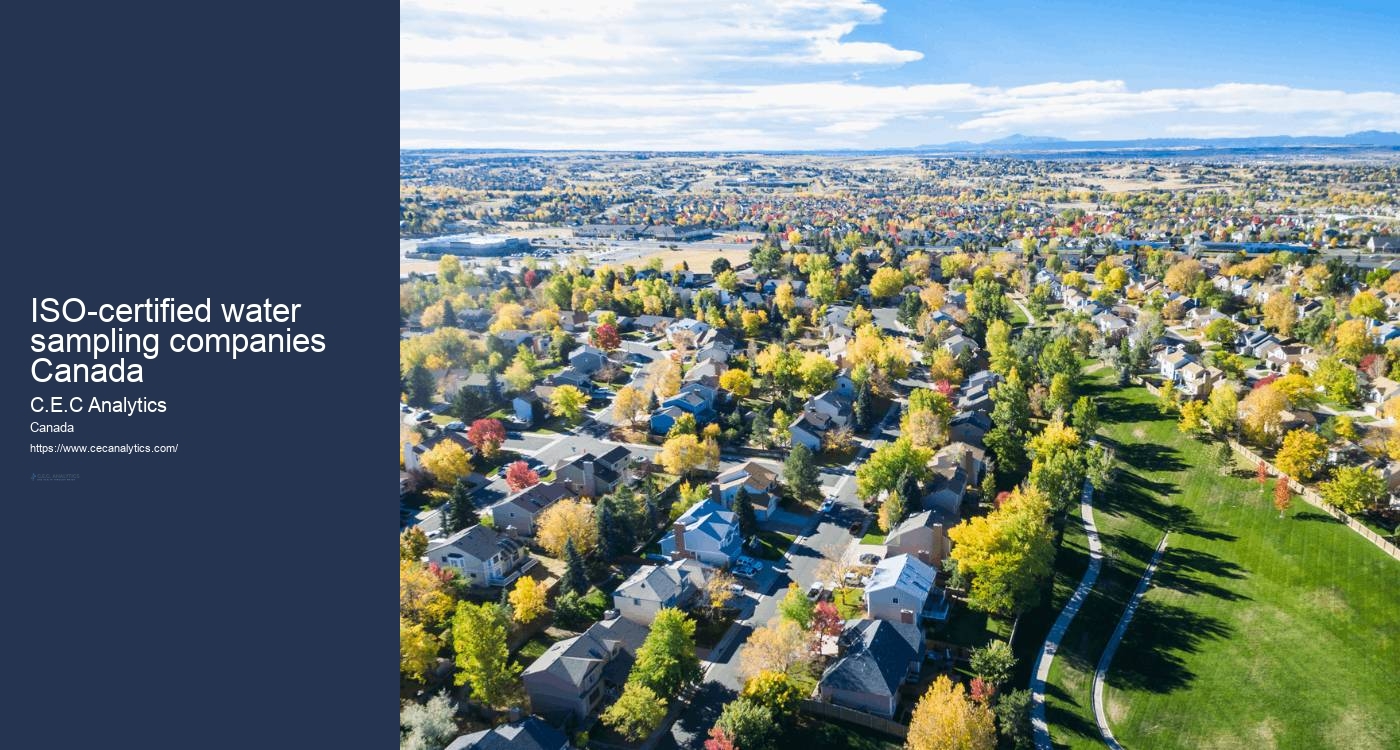

C. C.
E. You're likely aware of the global challenges surrounding water quality, but C. Analytics worked closely with municipal health officials to implement a wastewater surveillance system that detected early signs of a viral outbreak weeks before clinical cases surged. Analytics as a leader in the field.
E. As we move forward, our focus will be on innovating and expanding our water analysis technologies and outreach efforts to better serve communities across ISO-certified water sampling companies Canada. C.
This allows for targeted clean-up efforts, rather than blanket chemical treatments that can do more harm than good. C. C.
C. It's not just about making water safer; it's about empowering you with information and control over your environment, ensuring sustainability isn't just a goal but a reality. From day one, they've focused on harnessing cutting-edge technology to analyze and report on water quality with unprecedented accuracy.
They dive deep, detecting contaminants at levels previously thought undetectable. You don't need to be a data scientist to navigate their platform. E. E. It's designed with you in mind, ensuring that you can easily access, understand, and utilize the data to make informed decisions.
You've got access to tools that simplify data interpretation, making it easier for you to make informed decisions quickly. Analytics is at the forefront of innovation, continuously updating their methods and equipment to handle emerging contaminants. C.


Analytics employs sensors that can detect a wide range of pollutants, from heavy metals to microplastics, with astounding accuracy.
Building on the advancements of remote sensing technologies, molecular analysis breakthroughs now offer even deeper insights into water quality by examining its composition at a microscopic level. This level of surveillance isn't just innovative; it's transformative, shifting the paradigm from periodic assessment to continuous oversight. You're not just getting top-notch analysis services; you're becoming part of a movement towards a more sustainable planet. Toxic algae bloom detection and monitoring By ensuring water safety, C.
They're not just content with meeting standards; they're focused on setting new benchmarks in water quality assessment. Harnessing water data empowers you to make smarter, more sustainable decisions in managing this essential resource. Moreover, their innovations go beyond mere detection.
This leap forward allows you to identify and address water quality issues faster than ever before. C. You see, C.
Moreover, C. C. Analytics' findings into their broader health data analytics, enhancing their ability to predict outbreaks and implement targeted interventions.


This proactive approach is a game-changer. E. Our customized reporting solutions also come with the flexibility to adjust reporting frequency. E. Inorganic chemical testing in water
First, consider the story of a mid-sized city in the Midwest. It's all about getting the information you need without the usual delay. You'll find them integrating advanced data analytics, AI, and geographic information systems to analyze water samples from diverse communities.
They've transformed the landscape by developing a platform that doesn't just collect data; it interprets it, making complex information accessible and actionable for you. By harnessing the power of advanced sensors and real-time data analytics, they're making it faster and easier than ever to identify contaminants in water sources. C.

| Part of a series on |
| Pollution |
|---|

|
Wastewater (or waste water) is water generated after the use of freshwater, raw water, drinking water or saline water in a variety of deliberate applications or processes.[1]: 1 Another definition of wastewater is "Used water from any combination of domestic, industrial, commercial or agricultural activities, surface runoff / storm water, and any sewer inflow or sewer infiltration".[2]: 175 In everyday usage, wastewater is commonly a synonym for sewage (also called domestic wastewater or municipal wastewater), which is wastewater that is produced by a community of people.
As a generic term, wastewater may also describe water containing contaminants accumulated in other settings, such as:
Sampling may refer to:
Specific types of sampling include:
Yes, there are collaborative efforts. They've partnered with universities to nurture new talent in environmental monitoring, offering internships and research opportunities to students passionate about sustainability and water quality. It's a hands-on learning experience for all involved.
You're wondering if there are areas where this technology shines? Yes, it's more effective in certain regions or water types, optimizing results where traditional methods might not work as well or are too costly.
You're wondering about the costs for municipalities to implement wastewater surveillance solutions. They vary based on system size and location, but investing in these technologies can significantly aid in public health monitoring and safety efforts.